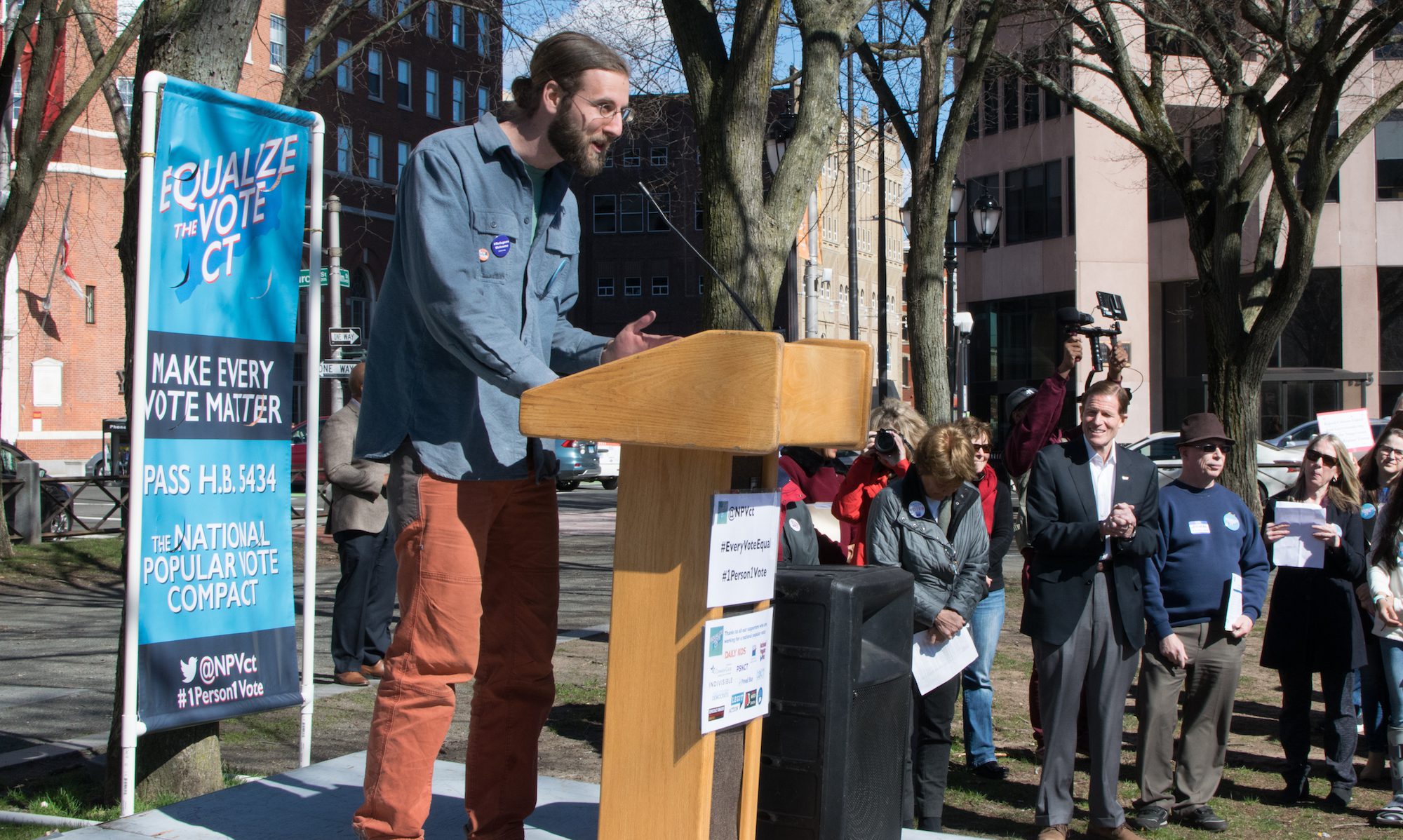
Steven Winter
Plans by Ward 1 Alder-elect Hacibey Catalbasogul ’19 to serve as minority leader of the Board of Alders were thrown into doubt when independent candidate Steven Winter ’11 claimed an upset victory in Ward 21 last month.
Both candidates expressed interest in the minority leader position, with Winter saying he hoped to “maximize his voice” in City Hall. Now, almost a month after the 2017 elections, there is still no update on the status of the position. Catalbasoglu said he met with Winter before Thanksgiving but that the pair did not make any “concrete” decisions.
“We are going to continue talking and seeing what the best option is for the both of us,” Catalbasoglu told the News.
Winter confirmed that account, saying there is “no update at this point.” He noted that he is speaking with both his colleagues and his constituents to find out what will make him “most effective” as an alder.
It remains unclear whether the position of minority leader will even be available to Catalbasoglu and Winter, given that both are registered Democrats. Because of the lack of clarity in the city charter, there are multiple possible interpretations of how the position may be decided — especially if Catalbasoglu and Winter cannot come up with a compromise.
The Office of Legislative Services noted that, because both candidates are technically Democrats, there is a possibility that all 30 alders will vote on the position. If he is faced with this prospect, Catalbasoglu said, he would consider “re-registering as an unaffiliated candidate.”
Questions have also emerged about how Catalbasoglu will navigate his membership on the board without belonging to the Democratic caucus, which will consist of 28 alders. His outsider status may hurt his relationships with other alders or provide him with a greater leadership position, giving him more influence in city politics.
John DeStefano, the former mayor of New Haven and a political science lecturer at Yale, said that, while the minority leader is important for representation and gets to meet with the mayor periodically, it is more important for an alder to develop relationships with other members of the board.
“The larger issue for any alder is building relationships with your colleagues and servicing your constituency,” DeStefano said.
However, DeStefano added that whether Catalbasoglu is in the caucus and whether he serves as minority leader, his ability to collaborate will be essential. It is impossible to get anything done without broad aldermanic support, he said.
In response to the concerns that he will be shut out of caucus deliberations, Catalbasoglu noted that belonging to the minority party would allow him his pick of committee assignments, giving him more of a say in the decision-making process.
“As long as I have a good enough working relationship with the rest of the alders, I can talk to them,” Catalbasoglu said.
Arlene DePino, the former Republican deputy minority leader of the Board of Alders, said the representation of a minority party is “an asset to the public” because it promotes more than just a single point of view.
But she noted that nowadays the Democratic caucus decides its voting procedure before the general meeting; as a result, the public is not able to get the full picture, witnessing only the votes and not the discussion. Thus, she said, both Catalbasoglu and Winter could lose some voice in the voting procedures because they are not in the caucus.
As for the minority leader position, DePino noted that one of the main responsibilities she had was to write and deliver a speech every year — a job that could help either Catalbasoglu or Winter gain more influence in city politics.
According to Catalbasoglu, he and Winter would have the opportunity to serve on all 10 committees between them. He noted that there is precedent for a single alder serving on half the aldermanic committees: In 2004, DePino did so and “had a foot in every door,” he said.
DePino said that city charter rules specify that the minority party should be represented on every committee. At one point during her 12-year tenure as alder, she was one of just two members of the Republican Party who served on the board and split the committees with the other alder.
But because of that arrangement, she said, she was “spread too thin” and had to miss a few committee meetings, though she had perfect full-board attendance.
The newly elected Board of Alders will be sworn in on Jan. 1, 2018.
Ashna Gupta | ashna.gupta@yale.edu







